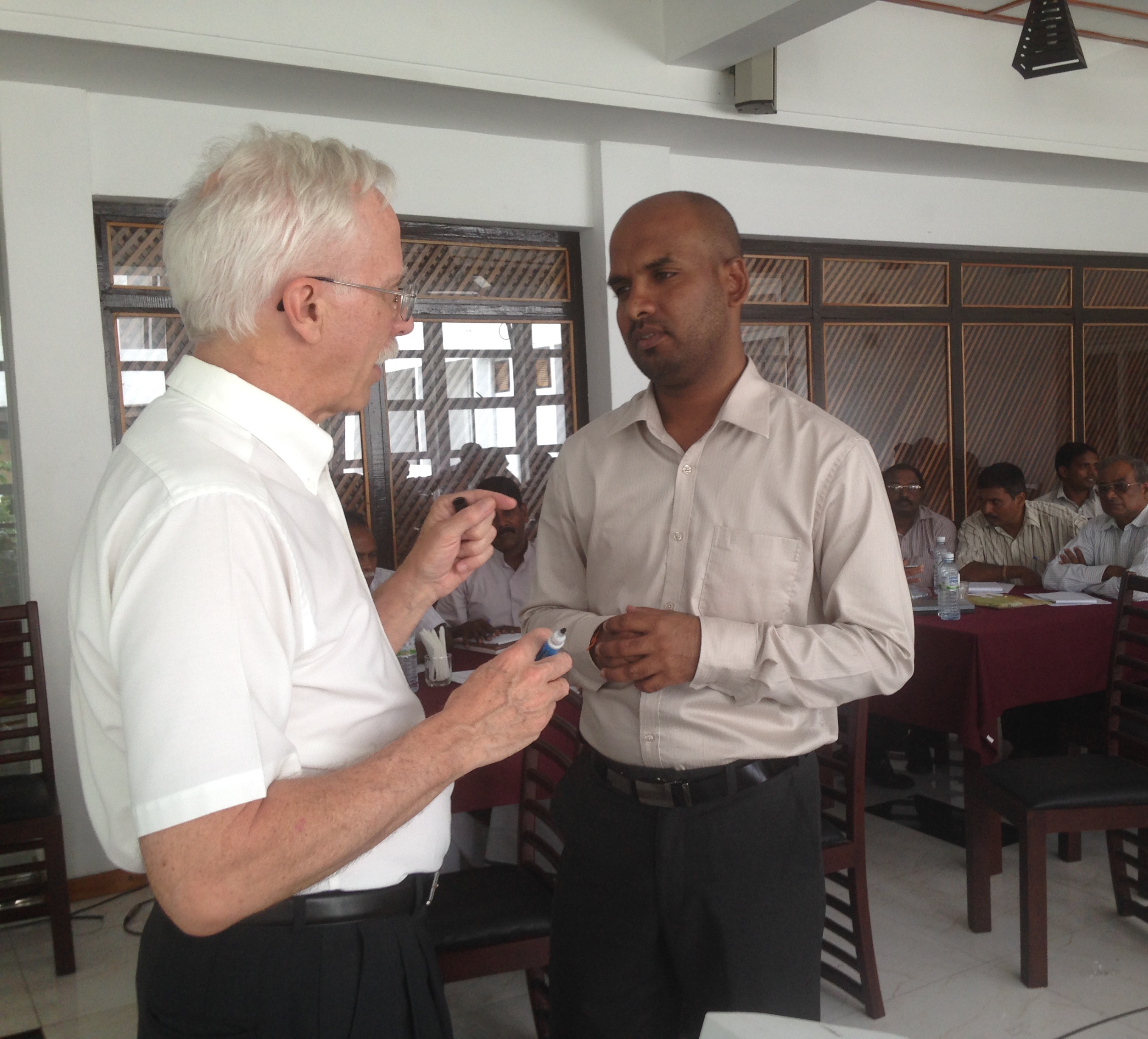
An ICMA team has concluded a successful economic development project in Sri Lanka, assisting local governments in former conflict areas as they restore public services and resume economic activity.
ICMA was a member of a team that received funding from the U.S. Agency for International Development (USAID) to carry out a three-year program to stimulate economic growth by developing the capacity of local governments to offer an enabling environment for their private firms. A major goal was to create new jobs and attract investment.
ICMA completed three primary activities: (1) an assessment of solid waste practices in the city of Trincomalee; (2) a gap analysis of the legal and regulatory environment in two districts; and (3) local economic development training.
Improving Solid Waste Management
Trincomalee is a port city of about 100,000 on the Indian Ocean with a growing population and increasing economic and tourist activity. Yet its solid waste practices were not keeping pace with the growth. A fifth of the waste was left uncollected and dumpsites were overfilled, posing threats to the environment and public health.
ICMA engaged the Urban Management Centre (UMC), its representative in South Asia, based in Ahmedabad, India, to assess the status of solid waste collection and disposal and make recommendations for improvement.
UMC sought input from the city’s urban council, which manages local waste management, the assistant local government commissioner, the medical superintendent of the local hospital, and citizens. The team then assessed current practices and made twelve recommendations. The local leadership committed to begin implementing two of them immediately.
Strengthening the Legal and Regulatory Framework
In two northern districts, Valikamam West and Karachchi, economic development activities were hampered by lack of legal authority; lack of clear procedures for contracting, licensing, inspections, and other processes and transactions; and lack of documentation to provide an orientation for incoming council members.
Working with the Federation of Sri Lankan Local Government Authorities (FSLGA), one of ICMA’s international affiliate organizations, the ICMA team conducted a gap analysis to identify improvements that were most pressing in order to stimulate local economic development.
Four ICMA members with expertise in local economic development participated pro bono in a review of the resulting report: John Perry, life member and former city manager, Woodridge, Illinois; Bryan Montgomery, city manager, Oakley, California; Jim Nichols, former assistant city manager, Midland, Texas; and Wes Hare, city manager, Albany, Oregon. Two additional reviewers, David Eversten and Navneet (Shirin) Sahani, also contributed their expertise pro bono. UMC provided advice on approaches that were compatible with practices and expectations in the South Asian region.
Local Economic Development Training
Based on the gap analysis, ICMA designed local economic development training for the urban councils and chambers of commerce in the two districts. Steve Glueck, director of community and economic development in Golden, Colorado, conducted the two-day session.
After conducting a SWOT analysis (strengths, weaknesses, opportunities, threats), participants identified strategies that would improve the partnership between the local government and the business community. They then began outlining a strategic plan and concrete action steps.
The Project Team
The project team was composed of members of the Volunteers for Economic Growth Alliance (VEGA) and was headed by the International Executive Service Corps (IESC); other team members were ACDI/VOCA, Land O’Lakes, and the Financial Services Volunteer Corps, which served as a resource organization.
As the project ended, the team had left blueprints in place for improving local regulations and strengthening cooperation between local governing councils and the business community. And the local governments had begun taking steps to improve public services and public-private partnerships that promise to strengthen their local economies.
To learn more, visit the ICMA International website and the International Development topic area in the Knowledge Network, or e-mail international@icma.org
New, Reduced Membership Dues
A new, reduced dues rate is available for CAOs/ACAOs, along with additional discounts for those in smaller communities, has been implemented. Learn more and be sure to join or renew today!
